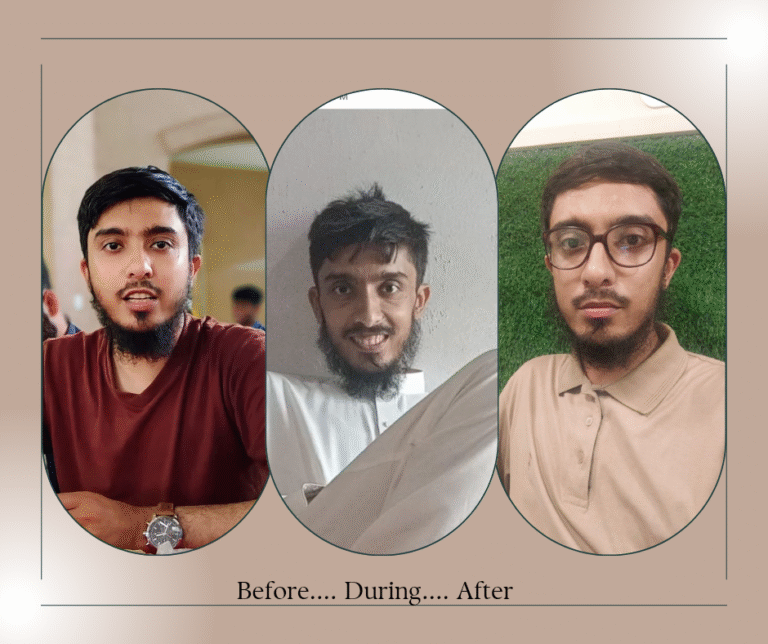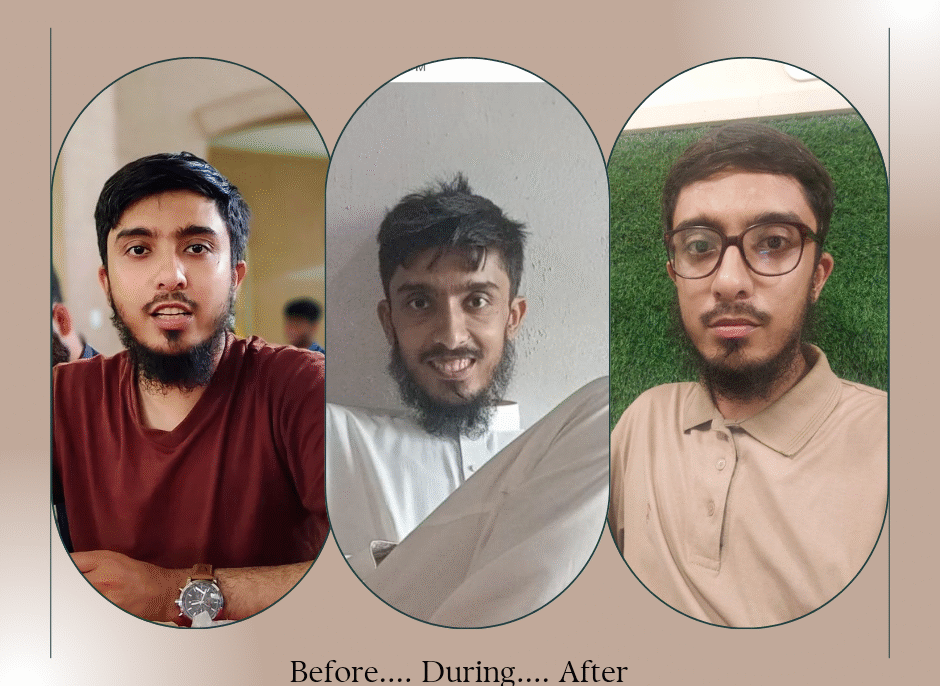
Hi, I’m Aftab Saqib
I am a Career Coach Web and IT Consultant Business Development ExpertWhat I Do
Career Coaching
Personalized career coaching empowering individuals to confidently navigate their professional journey from resume crafting to interview preparation.
Web and IT Consulting
Tailored solutions in web design and development, web hosting, and data base management and automation softwares.
Business Development Consultancy
Business plan optimization and risk management for aspiring entrepreneurs and startups to identify growth opportunities
My Resume
Education
BE Electrical Engineering
Hamdard University Islamabad CampusMajors: Electronics, Computer Programming, Logic and Algorithm Design, Data Communication and Networks, Engineering Management, Organizational Behaviour.
Intermediate
Edwardes College PeshawarHigher Secondary School Certifcate in Pre-Engineerinig with Maths, Physics, Chemisty as major subjects.
Job Experience
Program Manager
Amal Academy - (2021 - Present)Amal Academy is a Stanford University funded educational venture with a vision to create lifelong learners, self-starters and problem solvers.
Co-Founder / COO
Xecreators IT Services - (2017 - Present)Xecreators provides Web Design and Development, Web Hosting (HaaS & SaaS) services.
Coaching
Training and Facilitation
Facilitative Coaching
Career Counseling
Business Plan Optimization
Risk Management
Web and IT
WordPress
Web Host Management
Project Management
Troubleshooting
Optimization
Certified Trainer
School of LeadershipCertificate of Achievement for completing and passing Train The Young Trainer
Impact by SOL
School of LeadershipPublic Speaking Training Certifcation by School of Leadership
Organiational Analysis
Stanford OnlineCertification in Organizational Analysis by Stanford University.
Art of Conversation
Acument AcademyArt of Conversation by Kristta Tippet
Public Speaking
Acument AcademyChris Anderson on Public Speaking
Analytics Individual
GoogleGoogle Analytics Individual Qualification
My Blog
نثر اور شاعری ۔ فرق، فہم اور فن
آخر میں یہ سمجھنا ضروری ہے کہ شاعری محض الفاظ کی ترتیب بدلنے کا نام نہیں۔ شاعری جملوں کو اوپر نیچے کرنے یا لفظوں کے ہیر پھیر سے پیدا نہیں

نثر اور شاعری ۔ فرق، فہم اور فن
ادب میں لفظ کبھی سادہ بیان کی صورت میں سامنے آتا ہے، اور کبھی وجد کے رنگ میں ڈھل کر احساس بن جاتا ہے۔ یہی احساس جب لے اور آہنگ کے ساتھ بہنے لگے تو نثر سے آگے بڑھ کر نظم بن جاتا ہے۔ شاعری کا جوہر اسی لے اور توازن میں پوشیدہ ہے۔
نثر دراصل عام گفتگو کا انداز ہے۔ اس میں بحر یا وزن کی کوئی پابندی نہیں ہوتی۔ نثر وہ اظہار ہے جو عقل و خیال کو بیان کرتا ہے۔ یہ خیالات کی ترتیب اور وضاحت پر قائم ہے، مگر جب یہی خیال آہنگ اور احساس کے قالب میں ڈھلتا ہے تو وہ نظم بن جاتا ہے۔ منیر نیازی کی مشہور نظم اس بات کی بہترین مثال ہے
ستارے جو دمکتے ہیں
کسی کی چشم حیراں میں
ملاقاتیں جو ہوتی ہیں
جمالِ ابر و باراں میں
یہ نا آباد وقتوں میں
دلِ ناشاد میں ہوگی
محبت اب نہیں ہوگی
یہ کچھ دن بعد میں ہوگی
گزر جائیں گے جب یہ دن
یہ ان کی یاد میں ہوگی
نظم احساس کا آہنگ ہے۔ اس میں وہ روانی اور سرور ہے جو لفظوں کو گنگنانے کے قابل بنا دیتا ہے۔ یہ وحدتِ خیال رکھتی ہے اور جذبات کو ایک تسلسل میں باندھتی ہے۔
یہ وہ موسیقیت اور جذبہ ہے جو نثر میں ممکن نہیں۔
آزاد نظم، نظم ہی کی ایک شکل ہے مگر اس میں کسی خاص بحر یا قافیہ کی قید نہیں ہوتی۔ پھر بھی اس کے مصرعوں میں ایک غیر مرئی توازن اور لے پائی جاتی ہے۔ یہی لے اسے نثر بننے سے بچاتی ہے۔
کشور ناہید کی نظم اس کا خوبصورت نمونہ ہے
یہ ہم گنہگار عورتیں ہیں
جو اہلِ جبہ کی تمکنت سے نہ رعب کھائیں
نہ جان بیچیں
نہ سر جھکائیں
نہ ہاتھ جوڑیں
یہ ہم گنہگار عورتیں ہیں
کہ جن کے جسموں کی فصل بیچیں جو لوگ
وہ سرفراز ٹھہریں
نیابتِ امتیاز ٹھہریں
وہ داورِ اہلِ ساز ٹھہریں
یہ نظم نہ بحر کی پابند ہے، نہ قافیہ کی، مگر ہر مصرعے میں ایک وزن اور تاثیر موجود ہے جو دل پر اثر ڈالتی ہے۔
پابند نظم اپنی ساخت میں مکمل اور بحر و ردیف میں یکسانی رکھتی ہے۔ اس میں خیال کی وحدت کے ساتھ فکری تسلسل بھی ہوتا ہے۔ فیض احمد فیض کی مشہور نظم اس کی روشن مثال ہے
یہ داغ داغ اُجالا، یہ شب گزیدہ سحر
وہ انتظار تھا جس کا، یہ وہ سحر تو نہیں
یہ وہ سحر تو نہیں جس کی آرزو لے کر
چلے تھے یار کہ مل جائے گی کہیں نہ کہیں
فلک کے دشت میں تاروں کی آخری منزل
کہیں تو ہوگا شبِ سست موج کا ساحل
کہیں تو جا کے رکے گا سفینۂ غمِ دل
یہ وہ جذبہ ہے جو نظم کو محض لفظوں سے آگے لے جا کر احساس کی شدت بنا دیتا ہے۔
غزل دراصل پابند نظم کی ایک لطیف صنف ہے۔ اس میں بھی بحر کی یکسانی ہوتی ہے، مگر ہر شعر الگ خیال کا اظہار کرتا ہے۔ غزل احساس کے ٹکڑوں کا وہ سلسلہ ہے جو دل کی مختلف کیفیتوں کو ایک ہی فضا میں جوڑ دیتا ہے۔
مرزا غالب کی غزل اس کی مثال ہے
دلِ نادان تجھے ہوا کیا ہے
آخر اس درد کی دوا کیا ہے
ہم ہیں مشتاق اور وہ بیزار
یا الٰہی یہ ماجرا کیا ہے
شاعری ان سب سے وسیع مفہوم رکھتی ہے۔ یہ وجدان اور احساس کی زبان ہے۔ یہ وہ مجنونی فن ہے جس میں تخلیق اپنی انتہا کو پہنچتی ہے۔ نثر کو شاعری سے الگ رکھا جاتا ہے کیونکہ شاعری میں وہ آہنگ اور وجدانی تاثر ہوتا ہے جو نثر میں ممکن نہیں۔ لفظوں کی محض ترتیب شاعری نہیں، بلکہ احساس کی لہروں پر بہتا ہوا خیال شاعری بنتا ہے۔
جو لوگ شاعری سیکھنا چاہتے ہیں، ان کے لیے سب سے پہلا قدم مطالعہ ہے۔ بڑے شعرا کے کلام کو پڑھنا اور سمجھنا ضروری ہے۔ ان کے اشعار کی لے اور بحر کو محسوس کرنا چاہیے۔ پھر ان ہی کی زمین میں لکھنے کی کوشش کی جا سکتی ہے۔ یہ چوری نہیں بلکہ سیکھنے کا بہترین طریقہ ہے۔ شاعری کی مشق تبھی ممکن ہے جب انسان دوسرے شعرا کے آہنگ کو سننے اور سمجھنے کا ہنر سیکھ لے۔
نثر عقل کی زبان ہے، نظم احساس کی۔
غزل دل کی زبان ہے، اور شاعری روح کی۔
نثر بیان کرتی ہے، مگر شاعری محسوس کرواتی ہے۔
آخر میں یہ سمجھنا ضروری ہے کہ شاعری محض الفاظ کی ترتیب بدلنے کا نام نہیں۔ شاعری جملوں کو اوپر نیچے کرنے یا لفظوں کے ہیر پھیر سے پیدا نہیں ہوتی۔ نثر کو اگر آپ لائنوں میں توڑ دیں تو وہ نظم نہیں بن جائے گی۔ شاعری کے لیے صرف الفاظ کافی نہیں ہوتے، اس کے لیے احساس، وزن، لے اور ایک باطنی آہنگ چاہیے۔ جو شخص ان عناصر کے بغیر الفاظ لکھ کر خود کو شاعر سمجھتا ہے، وہ دراصل خود فریبی میں مبتلا ہے۔ لفظوں کا ڈھیر شاعری نہیں بناتا، اور ہر وہ تحریر جو گنگنائی نہ جا سکے، وہ شاعری کے دائرے سے باہر ہے۔
From Abdominal Pain to a Fight for Life: My Journey Through Necrotizing Pancreatitis and Recovery
A pain I couldn’t ignore: It all started with what I thought was just abdominal pain. A little discomfort here and there—nothing serious, or so I believed. But life had

From Abdominal Pain to a Fight for Life: My Journey Through Necrotizing Pancreatitis and Recovery
A pain I couldn’t ignore:
It all started with what I thought was just abdominal pain. A little discomfort here and there—nothing serious, or so I believed. But life had other plans for me. Within hours, that pain turned into an emergency, a life-changing experience that tested every ounce of strength I had.I never imagined that a single night of pain would lead to months of struggle, countless procedures, and a battle where survival was not guaranteed. Today, I share my story—not just as a memory, but as a reminder of the fragile, precious nature of life and health.
Before: Life at 70 kg – Carefree and Unaware
Before pancreatitis hit me, I didn’t think much about health. Food was just food. I didn’t consider what I was putting into my body or the importance of a healthy digestive system. Why would I? Like most people, I believed health was something that just “worked” on its own.I was at a healthy 70kg, working, eating freely, living without restrictions. The word pancreatitis wasn’t even in my vocabulary. But on that night, when the pain struck like a thunderbolt, everything changed.
During: When Life Came to a Halt, at 42kg
That pain wasn’t ordinary—it was acute pancreatitis. What followed was a storm that lasted months.
Severe weight loss: From 70kg to as low as 42kg. I barely recognized myself in the mirror.
Multiple weeks in the hospital: No food, no water—only IV fluids. For weeks, I survived without eating a single grain of food.
Complications and surgeries: I had a laparoscopic surgery for gall bladder removal after 4 weeks of initial pancreatitis but my pancreas developed necrosis, leading to a next major surgery—pancreatic necrosectomy. Imagine parts of your body being removed because they’ve died inside you. That was my reality.
Drains, infections, and pain: Multiple drains were placed in my abdomen. For weeks, I had to go through drain washing sessions daily—first in the hospital, later at home.
Mental and physical collapse: There were weeks when I couldn’t stand for even a minute. I couldn’t sit without pain. I couldn’t even think about working or living normally. For almost four months, my diet was barely anything. Even when doctors cleared me to eat, my digestive system refused to cooperate. Every bite was a struggle. I had moments of doubt—would I ever recover? Would I ever eat normally again? Would I ever be able to walk without feeling like collapsing? Those were the questions I lived with every single day.
The Turning Point
Slowly, after the drains were removed—one after another—things began to change. When the last drain accidentally came out, I was terrified, but my surgeon reassured me: “This is okay. Maybe it’s time your body does the healing.”And it did. Slowly, I stood up without help. I walked for five minutes. I ate a small meal without pain. These little victories felt bigger than any achievement in my life. By June, I could finally eat a normal diet after four long months. By August, I returned to in-person work, something I couldn’t even dream of a few months earlier.
After: Life at 56kg – A New Beginning
Today, as I write this, I weigh around 56kg. My pancreas isn’t the same—it lost part of its exocrine function. I take oral enzymes to help me digest food, maybe for life. But compared to what I’ve been through, this is nothing. I look back at that fragile person in the hospital bed, barely able to speak, wondering if he’d survive—and I feel immense gratitude. I feel gratitude to Allah, to my family, to my doctors, and to the people who stood by me when I couldn’t stand for myself.
Lessons I Will Never Forget
This journey changed me. Completely. Here’s what I’ve learned:
- Health is everything: Before this, I took health for granted. I ate carelessly, lived carelessly. Now I know—the body you live in is your biggest responsibility. Food isn’t just taste—it’s fuel, it’s medicine, it’s life.
- Family is Your True Strength: My father, my cousin, my mamu, and especially my wife—who was by my side every single moment—gave me hope when I had none. She cared for my smallest needs, even when I couldn’t lift my own head. This kind of love is priceless.
- A Good Doctor is a Blessing: I was blessed with a phenomenal team: Dr. Kashif, who performed my necrosectomy and carried out the whole treatment protocol, Dr. Muneeb, Dr Aqsa and under the guidance of Dr. Faisal Murad, the head of surgery. They treated me not just as a patient, but as a human being in pain. They listened, they explained, they cared.
- A Supportive Workplace Matters: Not once did my organization pressure me about work. They only asked, “How are you? How can we help?” When I was ready, they let me work from home. That kind of compassion is rare—and unforgettable.
Closing Thoughts
If you’ve read this far, here’s what I want to leave you with: Never take your health for granted. Cherish your family. Appreciate people who care. And never lose hope—even in your darkest days, recovery is possible.Today, I smile not because life is perfect, but because I know how close I came to losing it. And that makes every ordinary day feel extraordinary.
Contact With Me

You can reach out to me for Career Coaching, Web Designing, Web App Development, Web Hosting, and Business Development Consultancy.
Phone: +92-308-5039935 Email: contact@aftabsaqib.com




Aftab Saqib
Career Coach, Business Development Consultant